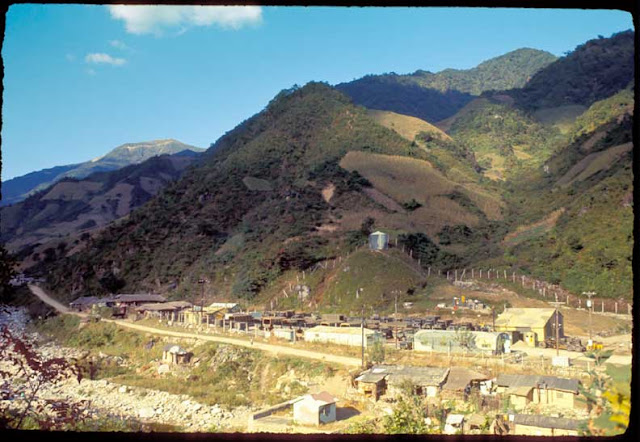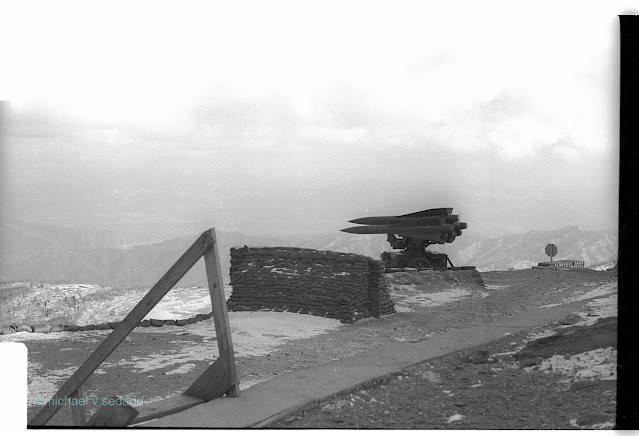SP4 Michael Sedano
Now is the darkest period in United States history, until another elementary school massacre shakes our cultural foundations. Memorial Day, dedicated to the nation’s war dead, already sets me melancholy with remembrance. Now we must remember these children along with those names on that wall.
I do remember men I trained with who went to Vietnam as Green Berets. Good souls, to a man.
 |
| Special Forces recruits on their final day at Ft. Ord. |
But I don’t want to drag myself into a worse darkness than I find myself, battling Alzheimer’s Dementia. It shouldn’t have been like this, but this is what we have.
Like when I got that Draft notice. Barbara wanted me to become a deserter. If not me, who, then? It was my turn. And that made all the difference. I wonder what would have happened, otherwise?
Memorial Day, 1963. Redlands, California.
Senior year and high school graduation nears. Mrs. Baccus tells me to prepare a reading of Lincoln’s Gettysburg Address for a Memorial Day ceremony at the cemetery. I don’t mind it’s not Post 650, the Chicano post from the Northside.
Choosing me to do the recitation is a natural. I’ve won a big regional speech contest for Post 106, and that summer, the post sponsored me for Boys State—a pretty big deal.
Legionnaires were cordial to me, though I felt uneasy when among these guys. I wasn’t one of their fair-haired boys because I’d eliminated those in the preliminary contests, and that rankled.
“Where are you from?” “What language do you speak at home?” “Where is your father from?”
Here. English. Here.
“You speak really good English.”
I show up in good time at the cemetery. I’ve worn my debater's outfit, a three-piece black pinstripe suit and polished toes. Muy formal feo y fuerte. I stride toward the site, United States flags strain against the hilltop breeze, a lot of flags.
I spot a suit with a clipboard giving instructions to a Boy Scouts Color Guard.
“Hi. I’m here to read “The Gettysburg Address.”
The man looks at his clipboard for a long moment, looks up but gazes beyond me. He says, “We’re not doing that.”
I cross the lawn to my car. Those rampant flags sure make a patriotic noise, que no?
A July Day in 1969: Hwaak-ni, Republic of Korea
 |
| Mae Bong at Left, Admin Area Center |
Hwaak-ni nestled with stunning isolation in the valley formed in the juncture of two mountains just South of the Demilitarized zone and North Korea. The Admin Area houses off-duty soldiers.
Duty is up on the Hill, Site 75, The Mountain, Mae Bong. Known throughout the Air Defense Artillery as “the highest and ruggedest HAWK site in world.” Already I know this, and it’s just my third night since I slept in Pasadena.
Generating electricity burns lots of diesel so the compound doesn’t have a lot of light. The Koreans don’t have electricity. The surrounding dark and thick humid air sounds of crickets, the running stream, and raucous laughter.
Right now, I point myself toward the only light in front of me. Behind me, the light above the door to my hootch casts a long shadow that points to the lighted mess hall. It’s my first night of a year in Korea. The Sergeant’s orientation rings in my ears.
“Sedano, you play your cards right and Korea is the best duty in the world. You report straight here do not go to morning formation. You go up on the mountain three days, down for two, like clockwork.”
He’s saved the best for last.
“Get yourself a nice Yobo. Korean women know how to treat a man. My Petunia sure does. You keep your Yobo in soap and cigarettes, and she’ll take care of you like you are her lord and master.”
I wondered, was it a translation? “How did you find a girl way out here named ‘Petunia’?”
“Sedano, you can name them anything you want.”
My first night, and from now on, I elect to avoid “The Ville” and the Petunias of Korea. Tonight, I’ll get to know Bravo 7/5.
The chow hall door is propped open and the laughter easily pours out of the screen door. I step inside. Six guys stand around a table. This big rangy white boy is arm wrestling all comers. Two guys sit down while I watch. Radowski dispatches them easily. Radowski exults, challenging anyone to have a seat.
Not knowing anyone and no one knowing me, I step up to the table. “I can take you left-handed.”
Radowski swells to the challenge, flexes his biceps.
“Oh yeah?”
“Yeah.”
Radowski rolls his t-shirt sleeve over his left shoulder and gives me a look. He’s confident but curious. I’m not a big guy and I’m still in my green fatigues. I roll my left sleeve four times to get the shirt good and tight. I flex my puny biceps dramatically and sit to the table. The other guys at the end of the mess hall get up and come watch. We have an audience. Everyone not in the Ville is watching Radowski and the new guy.
The ref cups our fists, announces, “the New Guy against Radowski! Ready…” he pulls his hand up, “go!”
The big white boy is strong. He’s a high school football player from the Valley who joined the Army to escape a drug bust. Radowski’s a downer freak. We become good friends.
Tonight, Radowski strains against the new guy to no avail. I hold my left arm rigid, lean into Radowski’s formidable power. But slowly Radowski’s arm weakens and mine exerts the slightest leverage.
The battery champion pinches his lips together against the force. In Korea's thick humid air, he's sweating profusely, desperate.
 |
| Radowski, Cole, Robledo, Lopez, Hughes, Perales |
Radowski loses.
The crowd isn’t happy. Their boy losing to the new guy, and no one knows who he is. I catch narrow suspicious eyes. A stranger among ‘em and he takes Radowski left-handed.
Radowski’s injured ego demands a right-handed rematch. He’s loud about it.
A moment later, the mess hall erupts in screaming and hollering, laughing and giving Radowski a hard time.
“You’ll win, man,” I announce. “I’m left-handed.”
Yellow Submarine Comes to Bravo 7/5
It’s September in sultry South Korea. The USO has brought Yellow Submarine to Hwaak-Ni and the vatos have come down off the hill ready for a good time.
Puro mexicano looking, Gonzales speaks Spanish like a Mexican, but when he opens his mouth in English he sounds like Charley Pride.
Robledo is off the streets of SanAnto, a homeboy cruiser with memories. A good man.
Lopez is guero with a nopal en la frente. Lopez, who speaks only Spanish, one night vows to make a pilgrimage to la virgen -- on his knees the whole way bleeding in agony, we tease him -- when he gets out of this pinche outfit.
Cole, the Dallas Dartmouth dropout, joined up. He's a lost child of the 60s, a good man regretting a bad decision. He should have studied.
Hughes, the son of a New York policeman, will have a conversation with his dad about smoking pot. The plant grows wild here at Hwaak-ni.
Perales from Morgan Hill, where I picked chavacan as a kid, stands perpetually befuddled. "Sedano, you're crazy" is the teenager’s standard refrain.
Concha. The school janitor from Santa Ana. My best partner who hated everything about the Army. I bet you stayed in, didn't you Concha!
We entice "Hillbilly" to join us, our infectious brand of high enthusiasm not really convincing him. “Bred an' raised in Hilltop, TN,” Atkins would tell us, explaining where he's actually from, Ridgetop, Tennessee, isn't on any maps.
Hillbilly’s one of us. We look out for each other, and we want Hillbilly to dig the Beatles and the movie and the sixties and rock and roll music. Hillbilly drinks his 25 cent beers and listens. His world is the Orange Blossom Special, footsteps in the snow, not our world. All of that is lost to our friend. Top asked me incredulously one day, “Would you let Hillbilly into your home?”
Local hemp gets us buzzed and we file into the mess hall. We are happy with anticipation, already singing along with our favorite songs. No one has gone to the Ville tonight. Everyone wants a taste of what the Yellow Submarine carries.
The first song lifts us. “We all live in a yellow submarine, a yellow submarine...” We sway in tempo to the beat, our spirits restored because in this music, for these moments, we once again feel in touch with the world back home. We bask in sweet homesickness when a metal chair scrapes agonizingly against the cement floor. Hillbilly stomps out of the movie muttering disgustedly, “What is this shit?”
 |
| Concha, Right, about to salute my helicopter lifting off from the Admin Area. I never saw Concha again. |



.JPG)












